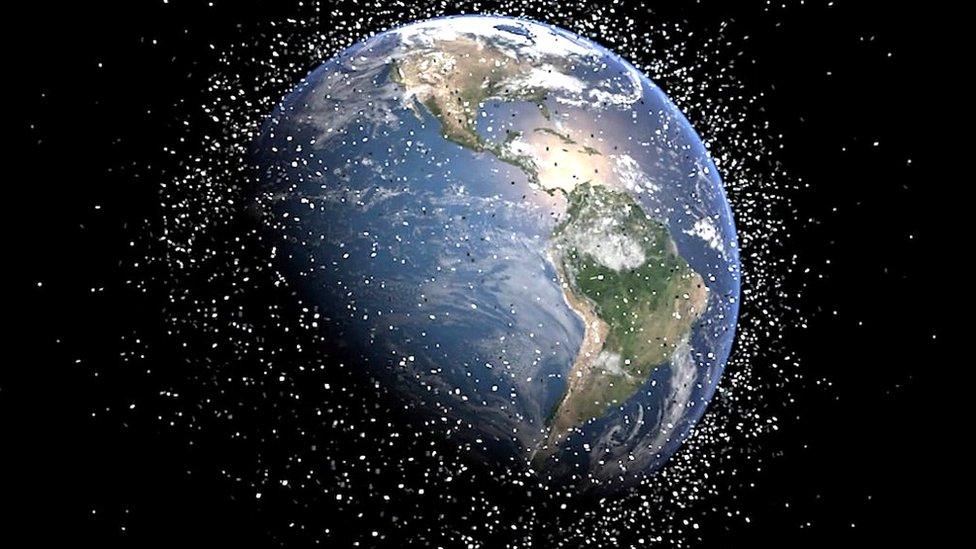Company says 'cosmic petrol station' ready by 2027
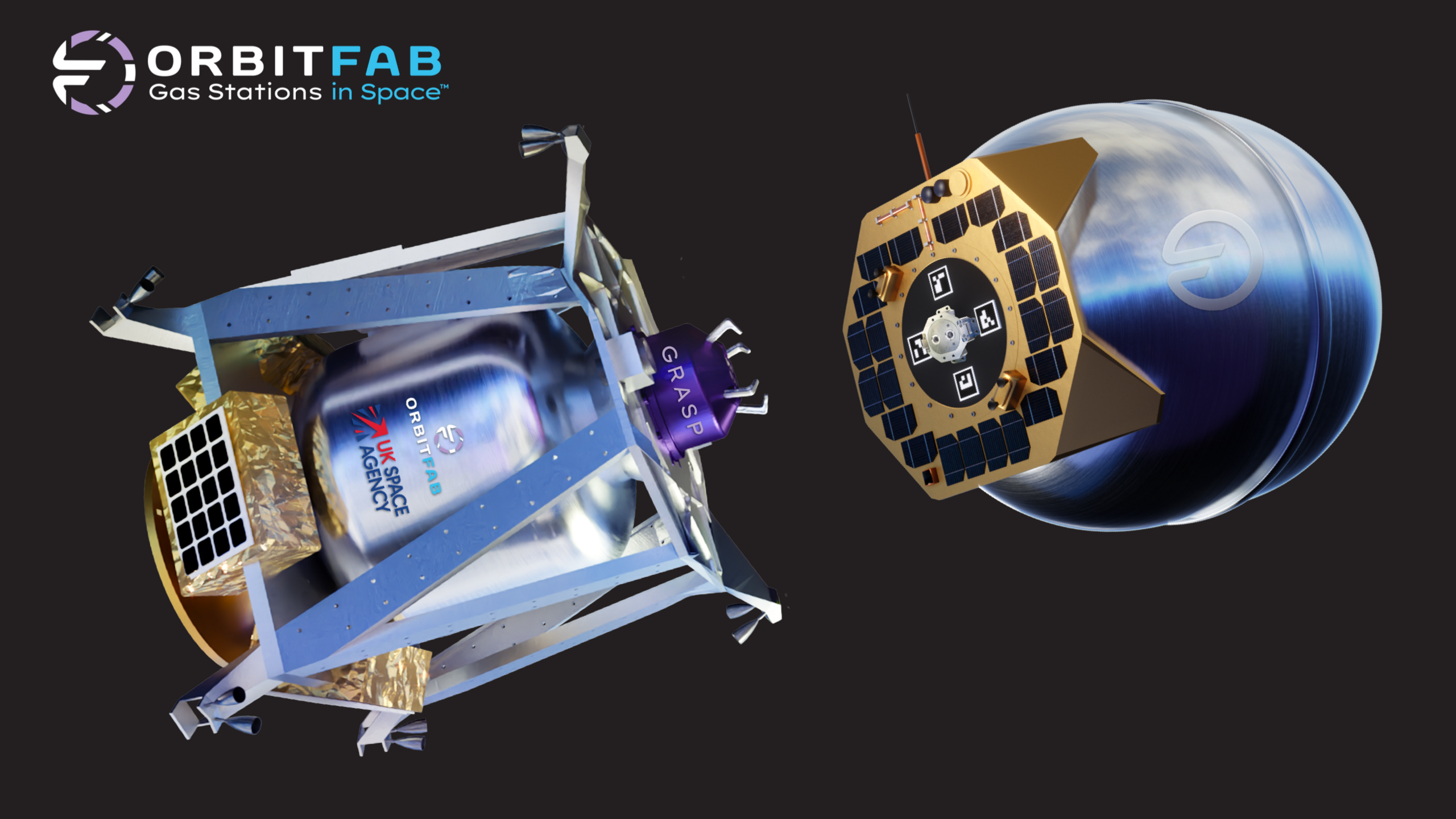
Orbit Fab is developing ways of refuelling satellites in space
- Published
A company developing "cosmic petrol stations" to extend the lives of satellites and enable missions to travel further said it hoped they would be in space by 2027.
Orbit Fab, based at the Harwell Space Campus, in Oxfordshire, recently won £1.3m from the UK Space Agency’s National Space Innovation Programme, external.
The funding has contributed to its Spitfire project, which aims to make refuelling in space a reality.
Currently satellites in orbit cannot be refuelled, meaning that when they run out of fuel they just drift around and become space junk.
Jacob Geer, managing director at Orbit Fab UK, said: "Docking a spacecraft in space to enable fuel to be transferred from one to another hasn't been done before."
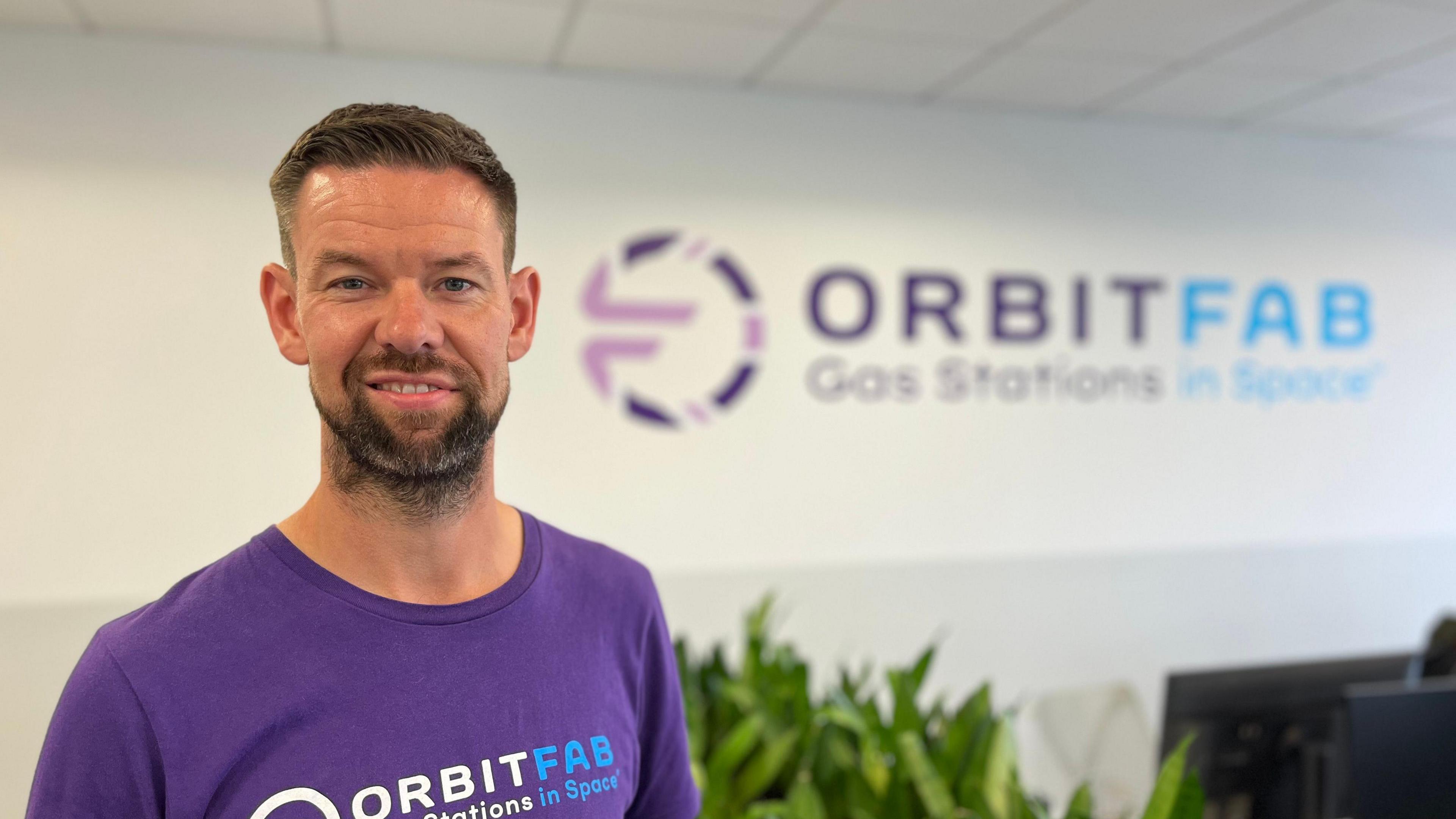
Jacob Geer is managing director at Orbit Fab UK
"We're trying to change that here by making sure that any satellite that goes up to space has a fuelling port on it, a bit like in your car, and then we can go up with our robotic interface and refuel that spacecraft, so it can carry on doing its job," he said.
Mr Geer said the company's base in Harwell was "honestly fantastic".
"We've got so many other companies around us who are all trying to do similar things and everything's quite easy to do here, because everyone's local to us."
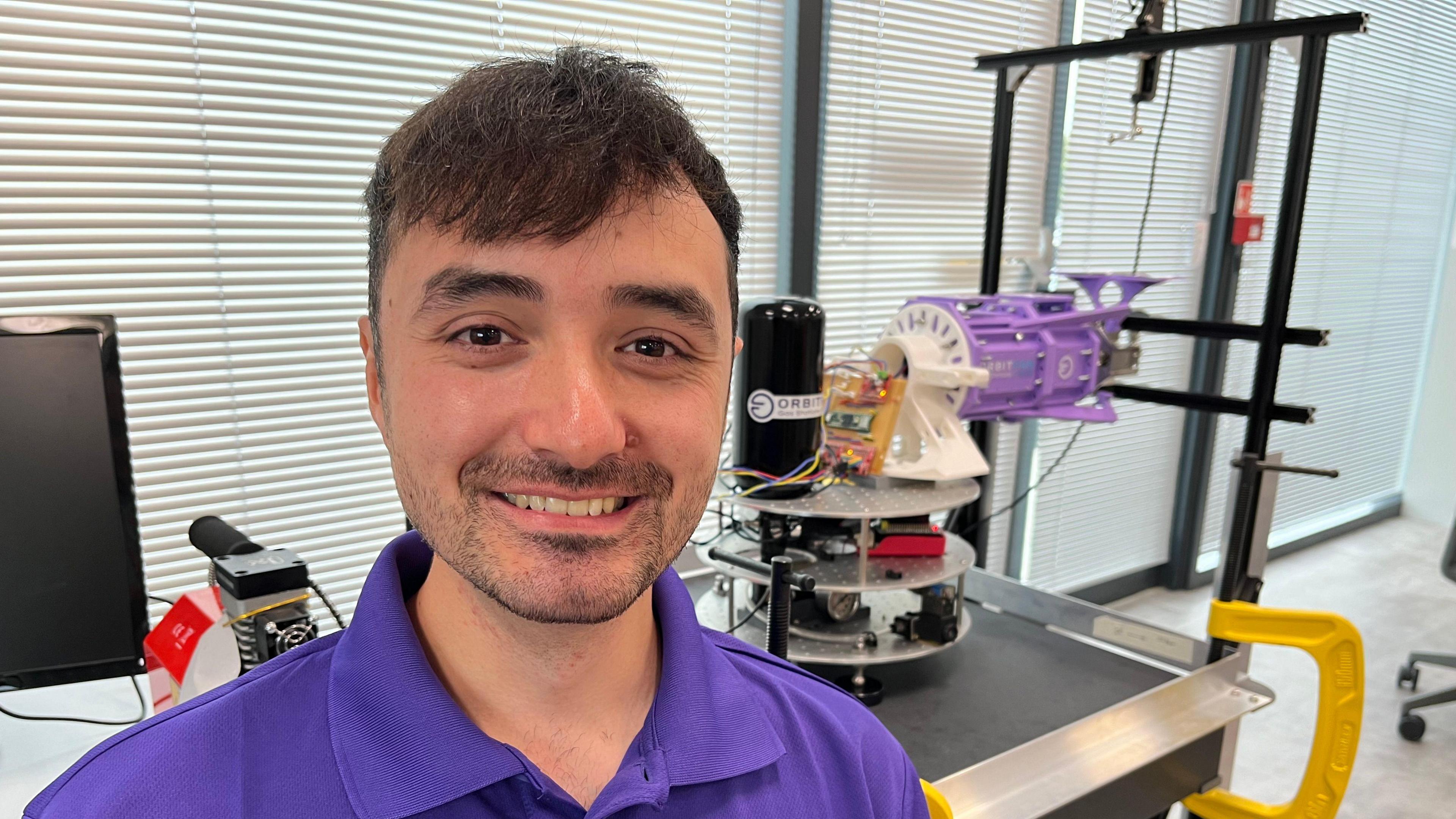
Omar Raj said the process would be like going to the petrol station.
He said the technology could mean satellites could be "a bit like when you leave your house in the morning".
"You're happy to go out with a fuel tank that isn't full, because you know there's gonna be a garage every so many miles," he said.
"That hasn't happened in space yet, but in five, 10 years time, with us doing what we're doing, that could be what happens up there."
Fluid System Engineer Omar Raj said the process would be "like when you go and refuel your car at the petrol station".
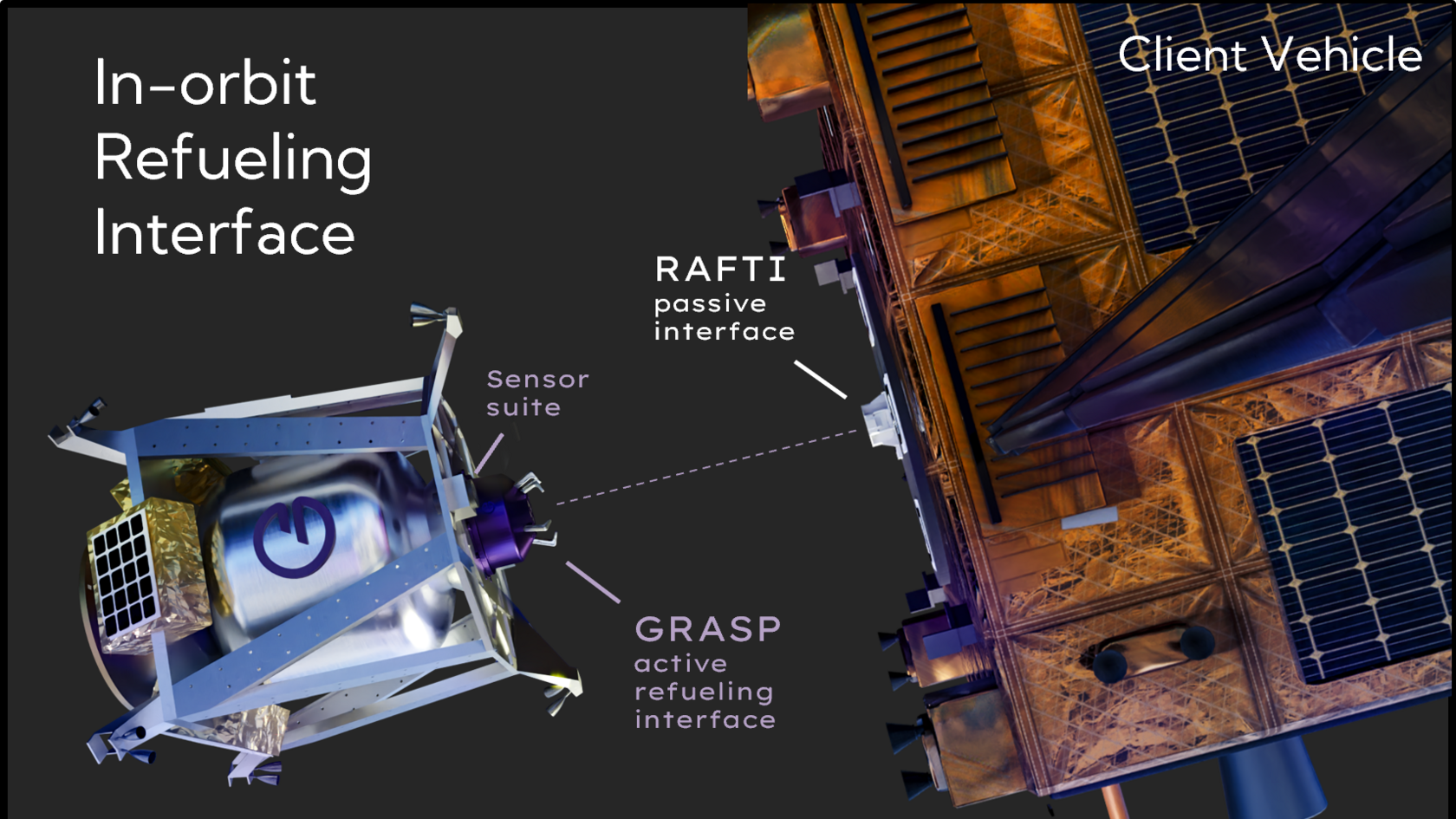
The diagram shows how the components should work together
The process would take roughly four hours to complete, he said.
A "complex dance" to accurately line up the two vessels, which would be orbiting the Earth at speeds of around 18,000mph (29,000kmh), for refuelling would also have to take place, Mr Raj said.
"We'll have a big network of fuel depots, which is the big fuel tanks in space and fuel shuttles that can go back and forth between client satellites."

Jas Tiruvuru said the technology would "unlock a huge market potential"
Jas Tiruvuru, business development manager for Orbit Fab in the UK and Europe, said the company was aiming to successfully demonstrate the technology in space by 2027.
"This will essentially be the first ever satellite to satellite refuelling demonstration funded here in the UK," she said.
"Once we've proven that we can refuel to two spacecrafts we'll be able to unlock a huge market potential."
It is believed the satellite sector could be worth more than £6.3bn ($8.2bn) by 2035.
Get in touch
Do you have a story BBC Oxfordshire should cover?
You can follow BBC Oxfordshire on Facebook, external, X (Twitter), external, or Instagram, external.
Related topics
- Published13 April 2021
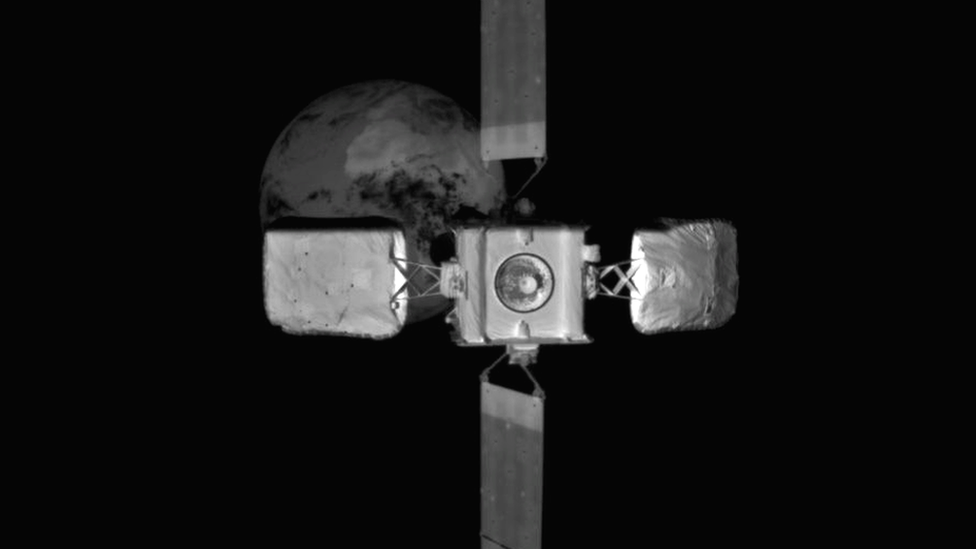
- Published4 August 2024
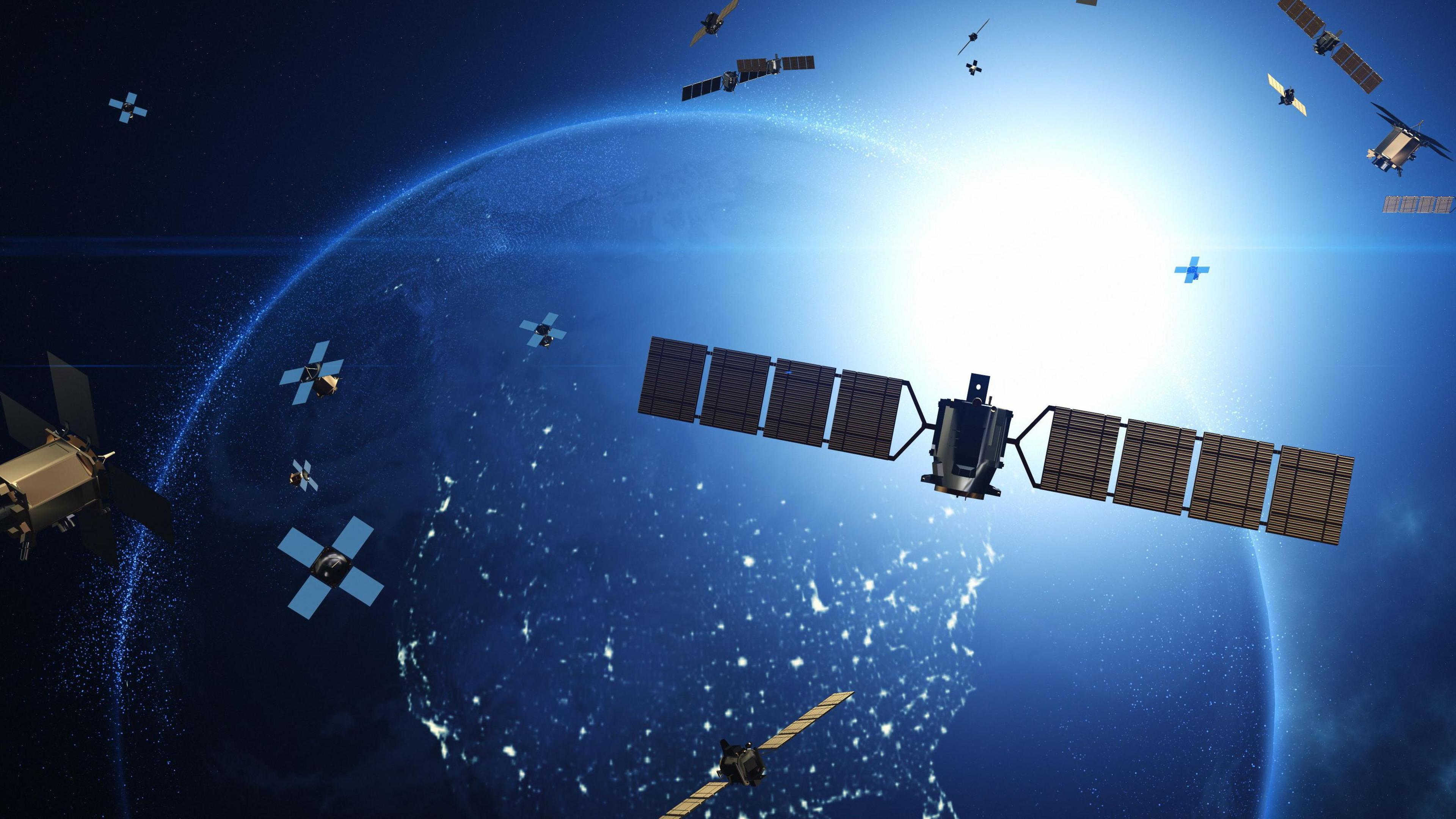
- Published3 October 2023
